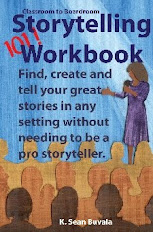I had a group of more than 40 boys in Baltimore on Saturday. This boys-only event was typical of and reminded me of the many boys-only events I have done. During the event, it was hard to get a real word or real answer from them. Occasionally, one of the boys would break the "bo
 y code" and give a real answer, but for the most part, it was a room full of 40 boys all keeping the code and posturing.
y code" and give a real answer, but for the most part, it was a room full of 40 boys all keeping the code and posturing.This last Tuesday, the director of the program Emailed to tell me, "I did get some great feedback from the guys..So I think that a lot of them got it...just didn't show it (on Saturday)...very typical."
"Long Thinkers" is what I call these types of boys who eventually tell you what they are thinking. Eventually.
The "long thinkers" can and will answer your questions, it just takes them longer to put the answer into words. I've had many of these long thinkers in my gender-based groups. Just ask Steven any question and he will slowly rub his forehead every time, as if he is wiping mental perspiration from the brow of his brain while he retorts "I just don't think very often about the questions you ask." Jacob will join in the conversations of story, essence and spirit only "after you guys start talking for a while so my mind can get the words for what I am thinking."
Long-thinkers do try to make sense of the stories and the questions they raise. They sometimes answer in stilted, formal sentences as if almost to ask, "Is this what I am supposed to say?" One of the boys in a book I worked on wrote, "We have too much going through our minds at once and we get frustrated mentally and lose track of our thoughts. Either we are not completely sure what to think or we will feel forced to say something."
Do you have long-thinkers in your life, programs, classroooms, audiences or even your families? "Long thinking" is not just limited to boys, but I see it mostly in boys groups. If you are working with boys, keep this thought in mind: if you are good at your work and clearly understand how to tell to boys, they will get it.
They just might not tell you for many days.





It makes one wonder: What's the hurry?
ReplyDeleteOf course, that is a valid observation. In schools, the hurry is 50 minute classroom periods with 30 kids in a classroom and a room full of girls who have, as a rule, better verbal skills than boys of the same age.If you as a storyteller have a single session with kids and you are seeking feedback, then there is a hurry there. There is great reward in working gender-based groups for both boys and girls, but the progrmas take time, especially with the boys, to produce results. Few schools, libraries, churches, rec programs, etc, will put out that amount of time for programming. Great question.
ReplyDeleteSean: You've nailed it. In many school models, there's not much time allotted to contemplative thinking. One of my brother's early grade school teachers remarked to my mother, "One day, I got it! Your son is actually quite bright--it was just that I never gave him enough time to answer the questions."
ReplyDeleteWe call it the "60 seconds rule" in that you ask a question for 15 seconds and shut-up and wait for the boy to answer for 45 seconds. Thanks for your comments.
ReplyDelete